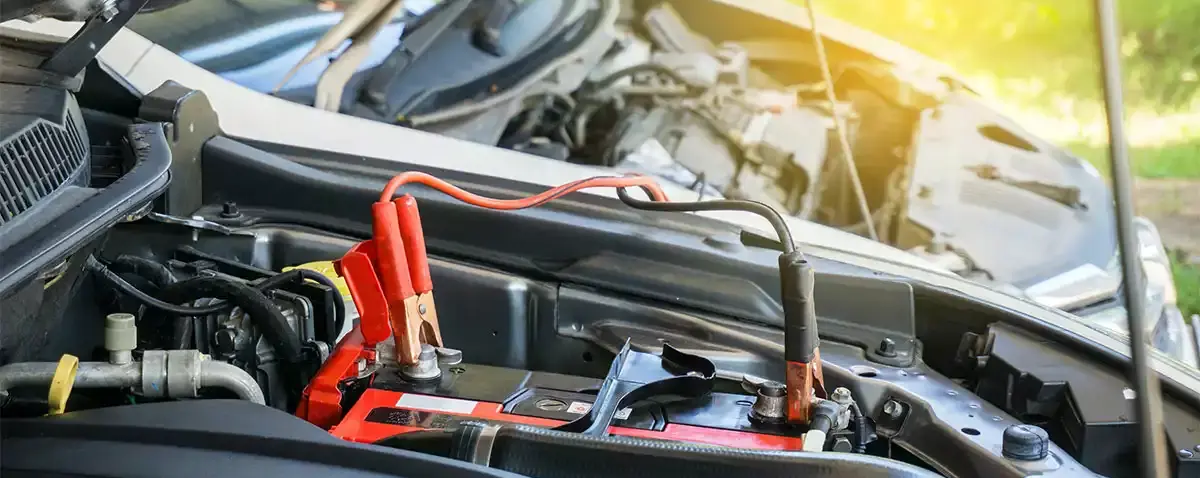How Hot Weather Affects Your Battery and What to Do About It
Did you know that summer heat can actually be tougher on car batteries than winter’s cold? It sounds a bit counterintuitive, but higher temperatures can have a bigger impact on the chemistry inside your battery that generates power. And it’s not just about the air temperature damaging your battery. Those scorching summer temperatures can really […]

Did you know that summer heat can actually be tougher on car batteries than winter’s cold? It sounds a bit counterintuitive, but higher temperatures can have a bigger impact on the chemistry inside your battery that generates power.
And it’s not just about the air temperature damaging your battery. Those scorching summer temperatures can really crank up the heat under the hood, causing your vehicle’s battery to fail even faster. It’s no wonder that many drivers end up getting stranded on the roadside during the summer months. Plus, even if your battery survives the summer, heat damage can reveal itself during the winter months when additional cranking power is needed to start your vehicle.
How high temperatures damage your battery
Despite what many drivers believe, winter’s cold is actually less harmful to your car battery than an extended period of hot weather. The ideal temperature range for a car battery is between 70°F and 80°F, so anything above that can cause damage.
The main reason why high summer temperatures can damage your car battery is due to the chemical reaction that occurs inside it. Internal temperatures in your engine compartment can reach 140°F or higher during a heat wave. As the temperature rises, the liquid catalyst-electrolyte inside the battery starts to evaporate, which can damage the battery’s internal structure and cause the lead plates in the battery to corrode, resulting in reduced battery life. Additionally, higher temperatures can speed up the chemical reactions happening inside the battery, resulting in a faster discharge and a shorter lifespan overall. Corrosion will also accumulate on the battery terminals and connectors more quickly when outdoor temperatures soar.
So, if you don’t take care of your battery during the sweltering summer months, you might end up stranded on the road under the baking sun or have a car that refuses to start come fall or winter.
The long-term consequences of heat damage
In addition to electrolyte evaporation and corrosion, extreme heat can have long-term consequences for your battery and your vehicle. For example, high temperatures come with the risk of overcharging. The heat can interfere with your vehicle’s voltage regulator and other components of the charging system, causing it to malfunction and overcharge your battery, leading to inevitable battery failure. In addition, summer heat can strain the charging system, causing the alternator to work harder to meet your vehicle’s electrical needs, which in turn generates more heat under the hood. This can cause the charging system to fail, potentially leading to expensive repairs.




